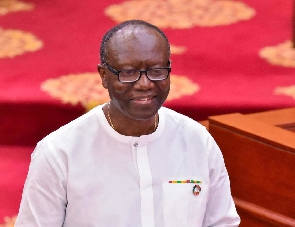A report by the Finance Committee of Parliament sighted by the B&FT shows that government, as part of strategies to restructure the energy sector, plans to ‘outrightly’ purchase some of the Independent Power Producers (IPPs) by using some of the proceeds from the bonds offered on the international market.
The report, dated December 2019, which contained a proposal to request the committee’s approval to raise US$3billion from the 2020 International Capital Market (ICM) funding programme, said government is seeking support from the World Bank to create an Energy Sector Fund to the tune of up to US$2billion – of which US$1million will come from funds of the ICM programme.
According to the report, the “Fund will focus primarily on refinancing the existing debt relating to Independent Power Producers (IPPs) within Ghana’s energy sector; or outrightly purchasing some of these plants with the primary goal of facilitating extended and cheaper financing to key producers and stakeholders, with the aim of reducing government’s excess capacity payment and overall cost within the sector”.
The remaining US$2billion proceeds from the bonds will be shared between budget support and liability management.
Commenting on the US$2billion Energy Sector Fund, CEO of the Chamber of the Independent Power Producers, Distributors and Bulk Consumers (CIPDiB), Elikplim Kwabla Apetorgbor, said in an article published in the B&FT that it is not a good strategy from government.
See Also: 24th International Trade Fair underway in Tamale “Creating a US$2billion Energy Sector Fund to re-finance the existing debt of the IPPs within Ghana’s energy sector or outright purchasing of some of the IPPs, with the primary goal of facilitating extended and cheaper financing to key producers and stakeholders with the aim of reducing government’s excess capacity payment and overall costs within the sector, is not strategic.
“Any attempt to force this idea on the IPPs will amount to nothing but ‘nationalisation’ of the energy sector, which wouldn’t speak well of the nation. As a prudent measure, this US$2billion Energy Sector Fund must be used to finance the legitimate and non-negotiable Capacity Charges of the IPPs,” he said.
He further stated that the biggest challenge to the sector is funding the annual revenue gap created by the ignored or deferred capacity charge component in the Public Utility Regulatory Commission’s (PURC’s) tariff methodology; hence, efforts must rather be directed to addressing this and not IPPs.
“The intended US$2billion Energy Sector Fund and the existing Energy Sector Levy Act (ESLA) should best meet this challenge. From this, it is clear that the supposed half-a-million-dollar cost of excess capacity on the neck of government is candidly an avoidable cost. That is, government only wants to look good before the end user by creating artificially lower tariffs, whereby some prudent costs are being disallowed,” he said.
Click to view details



Business News of Wednesday, 11 March 2020
Source: thebftonline.com

















